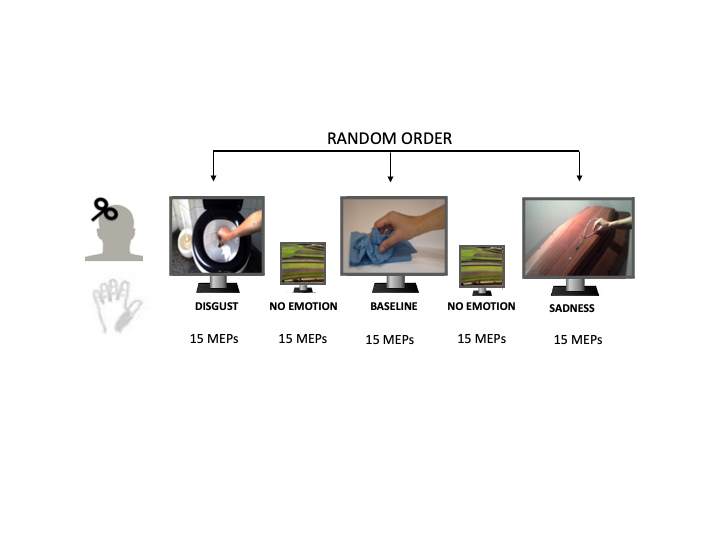Category: Parkinson's Disease: Cognitive functions
Objective: This study aims at exploring the response of the mirror neuron system, specifically motor resonance, to an emotion-enriched context in people with Parkinson disease (PD) with and without Freezing of Gait (FOG). We hypothesized a weakened responsiveness of the mirror system to emotional stimuli in patients with PD, more severe in patients with FOG respect to patients without FOG.
Background: In healthy people, motor resonance mechanisms are flexible to negative emotional contextual clues with greater motor resonance during the observation of a reach to grasp movement performed in a context eliciting disgust. The link between emotion and motor control has become an interesting topic in patients with PD, particularly in the phenomenon of freezing of gait.
Method: Corticospinal excitability was recorded in a total of 44 participants, divided into 3 groups (10 PD patients with and 13 PD patients without FOG and 21 healthy subjects). Motor-evoked potentials were recorded from a muscle involved in the grasping movement while participants were watching the same reach-to-grasp movement embedded in contexts with negative emotional valence, but different levels of arousal: sadness (low arousal), and disgust (high arousal).
Results: Basic motor resonance mechanisms were less efficient in PD than controls. Responsiveness to emotional contextual clues eliciting sadness was similar between PD and controls whereas responsiveness to emotional contextual clues eliciting disgust was impaired in PD patients with and without FOG.
Conclusion: Our findings show that reduced motor resonance flexibility to the disgusting context, supporting the hypothesis that PD patients may have a deficit in “translating” an aversive motivational state into a physiologic response. The amygdala, which is implicated in the appraisal of fearful stimuli and response to threatening situations, might be implicated in this process.
To cite this abstract in AMA style:
E. Pelosin, G. Lagravinese, A. Bisio, M. Bove, A. Botta, G. Bonassi, R. Marchese, S. Mezzarobba, P. Ruggeri, L. Avanzino. Motor resonance flexibility to emotion-enriched context in Parkinson’s disease patients with and without freezing of gait. [abstract]. Mov Disord. 2022; 37 (suppl 2). https://www.mdsabstracts.org/abstract/motor-resonance-flexibility-to-emotion-enriched-context-in-parkinsons-disease-patients-with-and-without-freezing-of-gait/. Accessed April 18, 2025.« Back to 2022 International Congress
MDS Abstracts - https://www.mdsabstracts.org/abstract/motor-resonance-flexibility-to-emotion-enriched-context-in-parkinsons-disease-patients-with-and-without-freezing-of-gait/

